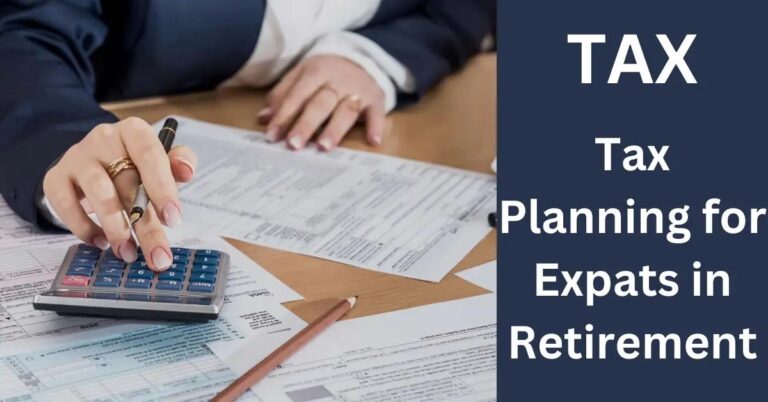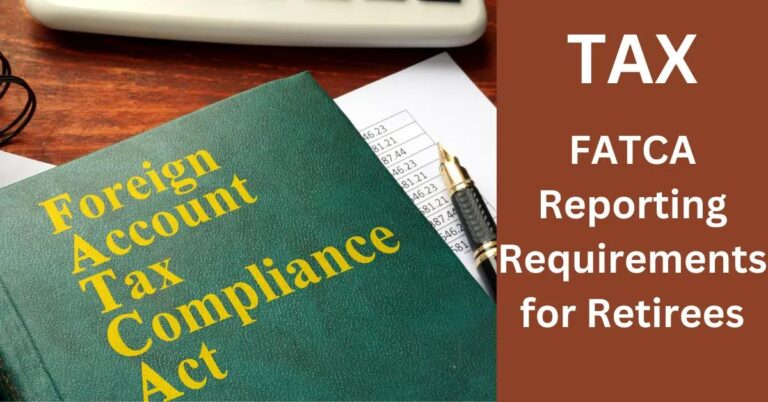TL;DR:
- U.S. residents typically must report and pay tax on overseas pensions due to global income taxation.
- Taxation is influenced by tax treaties and residency status, which can prevent double taxation.
- Reporting involves Form 1040, with income converted to USD and reported as “Other Income.”
- Double taxation treaties decide where you owe tax and might exempt certain pensions.
- The Windfall Elimination Provision can reduce U.S. Social Security benefits if you have a foreign pension.
- Withholding taxes may apply depending on the pension’s origin country.
- Exemptions or reliefs may apply based on pension type and U.S. tax laws.
- Expert financial and tax advice is essential for optimizing tax obligations and benefits across borders.
Navigating the tax treatment of overseas pensions can be tricky for expatriates. Understanding the intricacies of cross-border retirement income and tax liabilities is essential for anyone living abroad. How do different countries handle pension taxes, and what impact do double taxation treaties have? In this article, I’ll guide you through tax implications of foreign pensions, from US tax treatment to strategies for maximizing your retirement income. Ready to make sense of it all? Let’s dive in!
How Does Tax Treatment Vary for Overseas Pensions?
When dealing with overseas pensions, tax treatment depends on several factors. One pressing question is: Do I have to pay US taxes on foreign pension? For US residents, the answer is typically yes. You must report your foreign pension income to the IRS. The US taxes global income, which includes pensions from other countries.
However, the exact tax treatment involves many factors. What influences taxation of overseas pensions in the USA? First, there are country agreements, like tax treaties. These can reduce tax liabilities and prevent double taxation. Understanding these treaties is vital if you want to minimize taxes on your foreign pension.
Another factor is your residency status. If you are a US tax resident, you’ll face different tax rules compared to a non-resident. Knowing your status can help you plan how to handle taxes on your overseas pension.
Different countries have unique tax rules about pensions, too. For instance, Germany taxes pensions differently than the UK does. This means the destination country for your pension affects how much you pay. By knowing these variations, you can plan your finances better.
US residents must navigate these complex rules and use available resources. Double taxation treaties exist to ease the tax burden. Also, professional advice can guide you to comply with rules while saving on taxes.
Governments often revise tax laws, so staying informed is crucial. Tax treatments in places like Australia, Canada, or Spain can change. Regular checks for new agreements or rule changes help optimize your cross-border retirement income.
Each part of understanding foreign pensions’ tax implications is important. It requires your close attention to country agreements or residency rules. Handling each element wisely ensures you keep more of your retirement income. You might benefit from reading more about tax law updates through trusted sources, such as the IRS.
What is the Role of Double Taxation Treaties in Foreign Pension Taxation?
When you retire abroad, tax rules can get tricky. One key tool to manage this is the double taxation treaty. These treaties reduce the chance of paying taxes in two countries on the same income. So, what exactly do these treaties do?
Double taxation treaties help decide which country gets to tax your pension. Often, you end up paying tax in only one place. But which countries offer these benefits?
Countries like the UK and the USA have many treaties. These agreements help retirees like you avoid double taxation on pensions. Some treaties even exempt foreign pensions from taxation altogether.
Now you might ask, “Which countries do not tax foreign pension income?” Unfortunately, most countries do tax pension income in some form. But with the right treaties, your burden might be lighter. For example, the treaty between the USA and Ireland can offer significant tax breaks.
How exactly do these treaties work? Take a closer look. They often include provisions to credit taxes paid in another country. This means if you pay tax in your home country, you might not pay again abroad. It is important to read the treaty details or talk to a tax expert.
These treaties can lower your tax bill significantly, but are not simple. Sometimes, different parts of your pension may be taxed differently. For example, a treaty might exempt basic pension payments but not lump-sum distributions.
Making sense of these treaties takes effort. You need to understand how they apply personally to you. I always recommend consulting a tax advisor. They can help make sure you reap the full benefits of a treaty.
Knowing which treaties apply to you will help plan your retirement income. It saves you from paying more tax than you need to. Therefore, being informed about treaties and exemptions is essential. Understanding them can help secure a better financial future.
How Does One Report Foreign Pension Income to the IRS?
Reporting foreign pension income to the IRS involves key steps to ensure compliance. First, you need to determine the correct form to use, which is usually Form 1040. When filling out your Form 1040, report foreign pension income on the “Other Income” line. It’s your responsibility to gather all relevant documents and figure out the income in US dollars.
To make this process easier, tools like TurboTax can help. Many people ask how to report a foreign pension in TurboTax. You should enter your pension as “Other Income” in TurboTax’s guided interview process. It will walk you through each step, prompting you to ensure all necessary information is included.
Next, let’s consider common pitfalls and how to avoid them. Many taxpayers make simple mistakes that can lead to issues. For instance, one mistake is miscalculating currency conversion rates. The IRS requires accurate conversion of foreign currency to US dollars using a consistent and approved method.
Another common mistake is misunderstanding the difference between foreign pension and Social Security-style benefits. These can have different reporting requirements and tax treatments, so clarify your pension’s nature.
Staying informed about IRS rules for foreign pensions is crucial. A deep understanding of IRS guidelines helps prevent errors and ensures that you meet your tax obligations. Remember, the IRS expects full reporting of global income, and foreign pensions are no exception.
Lastly, keep an eye on your other related financial obligations. For instance, check if foreign taxes paid on your pension can be considered as tax credits in the US, which might reduce your tax bill. Stay proactive in managing your pension records to streamline reporting each year. Reliable software like TurboTax can help fill these gaps, but personal diligence is invaluable. Proper reporting involves clear attention to details and knowing the right sources for information, making your filing process smooth and accurate.
Are There Foreign Pension Exemptions Available?
Foreign pensions can be tricky when planning taxes. But don’t worry, there are exemptions and reliefs to help. These apply if certain criteria are met. Meeting them can mean less tax on foreign pension income.
First, check if your pension qualifies for exemption. U.S. laws have specific criteria. Your pension source, type, and more might matter. For example, if the income is from a non-U.S. government pension, it might be exempt. Annual income limits and residency can also play a role.
Next, let’s break down specific exemptions. The U.S. tax code offers various relief options. For example, you may be able to pay less tax if your pension is subject to foreign tax. Please note that only some exemptions are available in the U.S.
Now, what about United Nations and similar international pensions? Are UN pensions taxable in the U.S.? Yes, they are. But some aspects might help reduce your tax burden. UN employees could qualify for special exclusion under certain circumstances. It depends on the details of your situation.
Eligibility criteria can seem complex, but handling them is not impossible. If eligible, these foreign pension tax exemptions can help you save money.
Reliefs like the Foreign Earned Income Exclusion (FEIE) can also matter here. The FEIE helps exclude a specified portion of foreign income from U.S. tax. However, typically, this does not include pensions.
Claiming foreign pension tax relief is vital for efficiency. You must ensure you report everything correctly. Proper reporting ensures you maximize relief and avoid penalties.
In conclusion, navigating foreign pension exemptions doesn’t need to be overwhelming. With knowledge about your specific situation, you may ease the financial impact. Understanding the criteria and exemptions available lets you claim suitable tax relief.
How Do Foreign Pensions Impact Social Security Benefits?
Will my foreign pension affect my Social Security? Yes, it can. A foreign pension may decrease your Social Security benefits. It’s due to the Windfall Elimination Provision (WEP). This rule applies if you have a pension from work where you didn’t pay U.S. Social Security taxes. The WEP reduces your Social Security benefit to balance things out.
Now, let’s dive into how foreign pensions and Social Security interact. The WEP doesn’t apply to every foreign pension. Exemptions depend on your situation. It’s crucial to determine if the WEP affects your retirement planning. Each pension, domestic or foreign, must be evaluated. That evaluation includes understanding work history and how benefits are calculated. A local Social Security expert can help with this.
But what impact might these reductions have? They could change your total retirement income and tax bracket. A lower Social Security payout means a smaller total income. This could affect your tax status, possibly putting you in a lower tax bracket. Planning becomes very important. You should seek strategies to optimize your overall income.
So, how can you manage the effects on your benefits? Strategic planning is key. One strategy is working with a financial planner. Together, you can devise a plan to maintain your desired retirement lifestyle. You may also explore other income sources to fill gaps.
Ensuring you understand and manage your retirement income sources can help. Timing when you take foreign pensions and Social Security can lead to better outcomes. Knowing these interactions gives you control and confidence. This helps with smooth transitions into retirement. You can better plan and make informed choices for future stability. This peace of mind allows you to enjoy your retirement years.
What are the Tax Liabilities Associated with Withholding and Inheritance of Foreign Pensions?
Understanding how taxes apply to foreign pensions is key. When dealing with foreign pensions, you might face a withholding tax. This tax is taken by the country where the pension is from. The withholding tax on foreign pensions can affect how much you receive. It’s important to check the tax agreement between your country and the pension’s country. That can help you avoid being taxed twice.
When you inherit a foreign pension, there are other tax issues to consider. Taxation of inherited foreign pension assets can vary based on where you live and where the pension is from. In some cases, you might have to pay taxes on this income, just like you would on other pension income. It’s crucial to know the specific tax rules in your country regarding these assets. This can help you plan and manage any tax dues you might face.
One common question is: Do I have to report foreign pension income? Yes, you do. Reporting ensures you follow the law and pay any proper taxes. You should report all pension income on your tax returns. This includes any money from inherited pensions. This way, there are no surprises during tax season.
Foreign pension and Social Security can also interact in complex ways. If you receive a foreign pension and Social Security, each may impact the other. For instance, receiving a pension might influence the amount of Social Security you receive. You should plan carefully and know how these incomes affect each other.
To manage these complexities, consider strategic planning. You can explore ways to minimize inheritance-related tax liabilities. This might involve consulting a tax professional who knows international tax laws. They can offer advice to help make the most of your pension. Seeking guidance ensures you pay only what you owe, maximizing your retirement benefits.
How Can Expatriates Enhance Tax Efficiency with Global Pension Planning?
Expatriates can boost their tax efficiency with careful pension planning. First, you need a solid tax strategy. A good strategy considers both local and global tax laws. It should help you understand how your pension is taxed in each country you have ties to.
You also need to evaluate the structure of your pension plans. Some plans might come with benefits in one country but hefty taxes in another. Compare different pension plan options to find the most tax-efficient choice for your situation.
Expert advice can make a big difference. Financial advisors with experience in expatriate pensions know the ins and outs of tax rules. They can help you adapt to changes in foreign pension taxes. They also offer insights into minimizing your tax liabilities on retirement funds.
Seeking professional help is not just about avoiding mistakes. It’s about identifying opportunities to save. Engage experts who keep up with tax law updates across borders. They’ll guide you in using tax treaties between countries to your advantage. This can lower the taxes you owe on your overseas pension income.
It’s crucial to keep track of any changes in tax laws. Some countries frequently update their regulations for foreign pensions. Adapting promptly to these changes can prevent unexpected tax issues.
Taking these steps is not only smart but necessary. Without them, you might end up paying more tax than needed. Also, always document your pension income accurately. Each source of income you have, whether in your home country or abroad, should be clear and concise in your records.
In conclusion, global tax strategies for retirees are vital. They ensure you get the most out of your pension without unnecessary costs. For more expert advice on pensions, you can explore global tax strategies for retirees. This link offers insights into preparing for retirement efficiently, combining international insights and practices.
Conclusion
Navigating the tax landscape for overseas pensions can be complex but is vital. Understanding US tax treatment, double taxation treaties, and reporting requirements forms the foundation. Recognizing the impact on Social Security and potential exemptions adds another layer of consideration. Withholding taxes and inheritance laws require attention too. Ultimately, proactively planning and employing expert advice will optimize your retirement income across borders. Stay informed and adapt your strategies to minimize your tax burden and maximize your pension benefits, ensuring a smoother expat experience.












